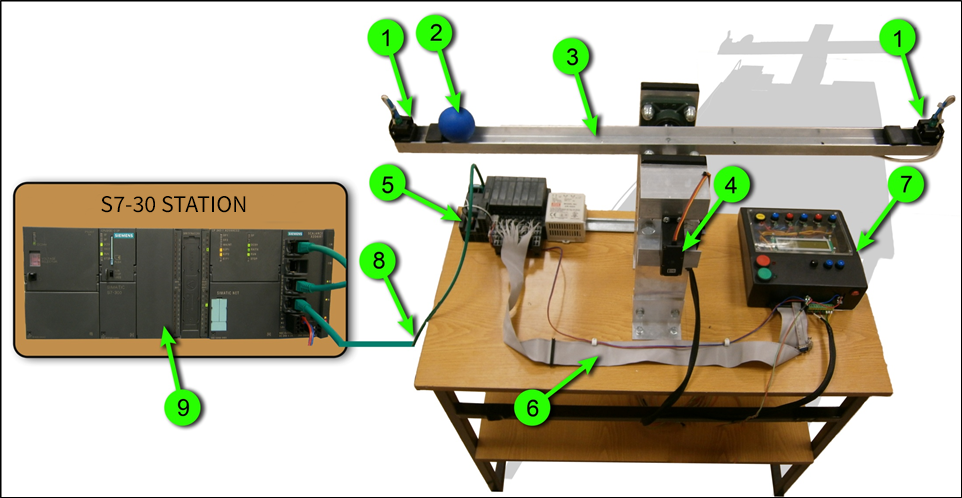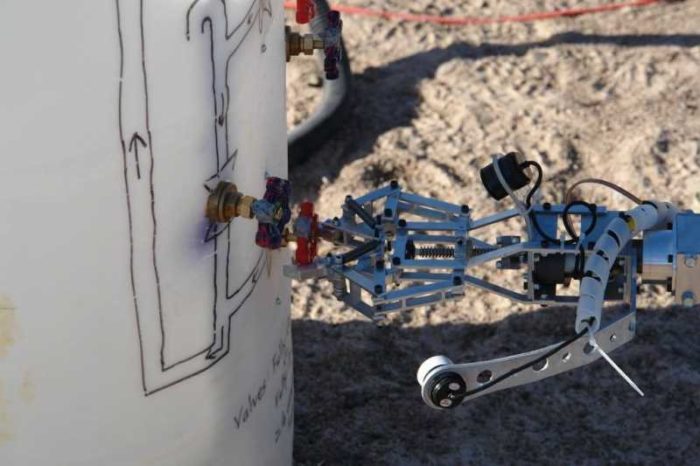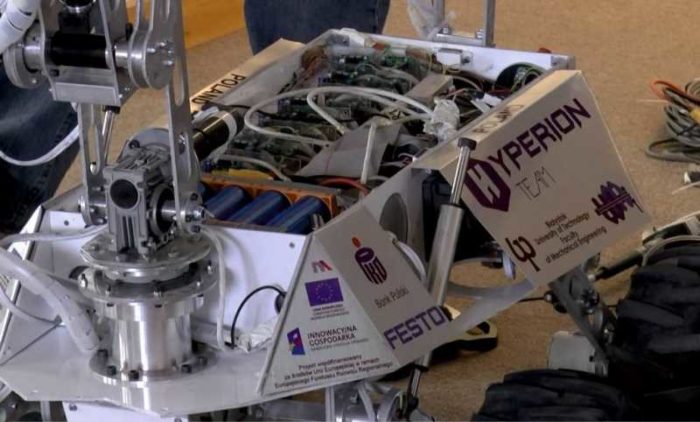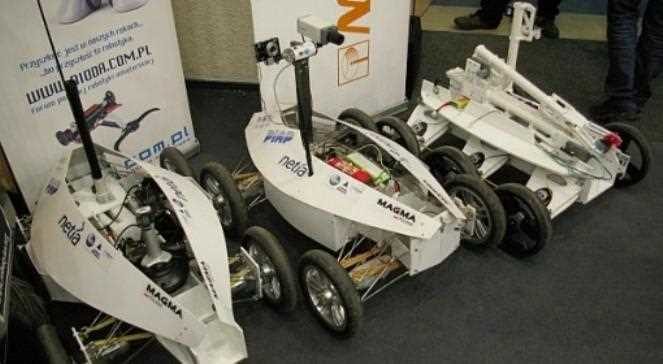I will ask you a question. Do you treat your studies as a compulsory duty, or rather as investment in your future life? If you study because you think that you’re supposed to do this and you just enter the title in your resume, unfortunately you’re just going to waste your time. If you have some ambitions and determination, I would like to give you some tips on how you can enrich your professional skills.

At the beginning I would like to motivate you a little bit. I do not know on which year of studies you are right now, I do not know if you study at all, but I know one thing: it’s never to early or too late to gain experience.
If you are at the beginning of your education, analyze the following examples very carefully. They present several possible scenarios:
- You go to university, because everyone does it. You jump over between tests and exams, just like KungFu Panda, and during projects you beat all the records in solitaire. After studies you work as a kebab-salesman, because you know nothing. At the beginning you earn PLN 1300, and after five years PLN 1350 (about € 322).
- You study, because when you enter in your CV “master degree”, employers will kill each other for you. You’re not stupid, you have pretty good marks. Once you thought about signing up for some science club. After studies you send your CV everywhere you can. After few interviews in big companies, you start thinking that working in Tesco is not so bad. At the beginning you get PLN 1300, and after five years you get promoted for being a manager of meat department and your salary increases to PLN 1950 (about € 465).
- During starting your studies, you start to understand that it’s high time to do something with your life. You get the scholarship. You sign up for a science club and your project is awarded. In your free time, you watch video on YouTube connected to your studies. As a recently graduated student you get a job in a small company from the branch of your studies. At the beginning you get PLN 1600, after two years your boss proposes you a pay raise to PLN 2000 but you quit you job because you got a better offer in different company, where your salary will be PLN 2500 (about € 595).
- The same as in point 3, but with the difference that your ambitions don’t allow you to sit in one place. You can connect your professional development with party life. You try to do completely everything that will increase your skills. You take part in trainings, unpaid internships. Your extended CV in comparison to other’s students, helps you to get a job in average company. At the beginning you get PLN 1600, in 2 years you get 3 pay raises to PLN 3000. You come to the conclusion that you can do nothing with your potential in such a place like this. You start a job in a big company, where you get PLN 3500 (about € 833) at the beginning, because of your experience. You don’t have to worry about anything, because it can only get better.
- , etc.
These are not imaginary examples but observations from my life. I can give here a few more better or worse scenarios, but it’s not the point. You have to understand that you should start trying right now and motivate yourself. I’m sure that if you want, you can gain a lot of experience. So I’m going to give you some clues how to do it.
#0 Laboratories and projects
Many times in my life I’ve met people complaining about studying. People, both during and after education, accuse universities that they teach student only about theory and there are only few practical classes. But is this true? After all, at technical universities there are laboratories where you can gain a lot of experience! Of course, the university has its own material that must be implemented and usually students treat such activities as the necessary evil. If you belong to such students, then you have to change the approach. Be curious about these materials and be active during classes. During computer classes, sometimes press F1 “HELP” in some software. Also try this at home and install the same application. Test, try, have fun and write a better report for the teacher.
Yeah, now you’re going to ask me “How will I use this knowledge in my professional life?” So I’m asking you what do you use every day watching funny videos on the internet or 99 level in some great RGP game for? Maybe such a program will not be useful, but believe me that in this way you will create your technical sense and familiarization with software. You will deal with every subsequent derivate program in a much faster way because you will know the structure of rules, which lead in functions of such programs. It’s not only about computer classes, but also about others.
Now, go get your tea and read the instruction for tomorrow laboratory classes 🙂
#1 Find an idea for yourself
At least for the time of half of the academic year choose some field and delve in everything what’s connected to it. Estimate in what you’re good at and train it. During my studies I get interested in PLC controllers. Contents about PLC controllers did not satisfied me a lot. So I started to take an interest about it in my free time. I searched for programming courses on the internet, I bought a book about it, etc., but I got to realize that it’s not working without some practice. I could not afford it to buy a PLC controller so I started to find a place where I could practice. In my university I had a classroom very well equipped in Siemens S7-300 controllers, so I had great learning possibilities. I thought that I will ask my dean is there any chance to use this classroom when it’s free to use. He agreed and gave me and my friend a permission. We wrote some kind of contract, in which I took the full responsibility of eventual damages, stealing, etc.
I spent there a lot of hours and I did not regret any of them. Two month after studies I got the job as a PLC programmer.
#2 Make practical Engineer Diploma Thesis and Master Thesis
When you’re going to create your 80-page thesis only from quotations from books and internet, how much are you going to learn? Believe me, making your thesis as something practical, gives you a lot of experience. To achieve it, you will have to understand a lot of issues, not rewrite them. This is not the simplest way, but it’s worth the trouble. When you understand the topic from the practical side, you will describe it without any effort. Create some didactic station or piece of model of production line.
In my Master Thesis I used a textbook example of dynamic object, which was a ball on beam. The controlling was made on Siemens S7-300 controller.
“Control system of real time of ball position with the use of PROFINET network”. I spent a lot of time during realization of this project, but believe me, I don’t regret every minute of it. The thing I have learned then, I’m using now in my job.

Every necessary expensive devices for the realization of topic were provided by Bialystok University of Technology.
#3 Go on a good student practices
Of course, you can do the student practices without participating in it. You can also study Automation and Robotics and for practices go to a completely unrelated company. However, I encourage you to go on the practices to the best company you will find. I guarantee you that if you got the practices in a good company, you will learn more than during academic year. I have completed my practices in Obram company in Olsztyn. I did not get the best, because those specialists were involved in a big project during this period of time and their deadline was not easy to approach. They did not have time to work with me, but they gave me access to specialist programs and equipment. Wishing or not, I had to organize these 6 hours a day and the biggest focus was on PLC controllers and Siemens HMI panels. The knowledge I gained there has accompanied me to these days.
Do not underestimate the practices! Maybe you think that it’s only one month, but it can have the big impact on your career. Such a point in your CV can interest your future employer.
#4 Go on an internship or additional practices – experience during studies
During studies, especially on the last semester, you can search for a job. You should have enough time to realize your diploma thesis and starting your career. Find proper companies in your area, call or e-mail them, or visit them in person. Ask them about possibility of internship and don’t worry about formalities. In most companies you will not be their first intern. The internship gives you a much better start on the job market. If you do not stay in the company where you practicing, another employer will appreciate the fact that you have already starter your professional career. Employers are aware that for the first few months they will have no use with graduate.
In my case, I did not have to do an internship, because at the end of my studies I started working in a small company as an automation specialist.
#5 Collect good habits
Do you remember the situation that during classes the lecturer did not pay attention to the content of your report or project, and pay more attention to stylistics, commas, title, table of content, etc.? I will tell you that he had a point! In your future job, if you will need to do some technical documentation, such details should be a non-negotiable standard. If your first documentation is done professionally, your employer will appreciate it.
Along with experience, moral awareness grows. We ripen slowly to everything, and with time we see more and more.
#6 Take part in some science club’s project
I remember when my friends started working on some robot – a rover. At first it looked ridiculous and the first test versions resembled a cheap Chinese toy. However, its next versions are Magma, Magma 2 and Hyperion. They started from nothing and reached such a level in it that they won few times in a row several competitions organized in USA. The most important is that they have gained a lot of experience, not only in technical aspects but also in organizational and team aspects.
Sign up for a science club! Not only you will learn something, but also you will have a lot of fun!
#7 Participate in free trainings and presentations
Enter the phrase “free training in … (your city)” in google and search for something that suits you. Not only you will learn something during such a training, but also you will get a participation diploma or certificate. In your CV, the heading “Courses and trainings” will present better than the white field. Sometimes companies from your branch organize one-day presentations about products or their operations. If you study automation go to the presentation about, for example, ABB frequency converters, Siemens PLC controllers or WEINTEK operator panels.




